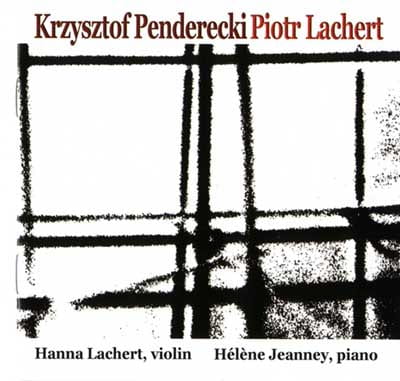Polish Music Center Newsletter Vol. 15, no. 2
PMC News
Stojowski Review
 Another review of Joseph A. Herter’s Zygmunt Stojowski: Life and Music (Polish Music History Series Vol. 10) has been published. This review, written by Dr. Mieczysław B. Biskupski of Central Connecticut State University, was published in the Autumn 2008 issue of Polish American Studies (Volume LXV, no. 2, pp. 91-92). Dr. Biskupski’s thoughtful and positive review is excerpted below:
Another review of Joseph A. Herter’s Zygmunt Stojowski: Life and Music (Polish Music History Series Vol. 10) has been published. This review, written by Dr. Mieczysław B. Biskupski of Central Connecticut State University, was published in the Autumn 2008 issue of Polish American Studies (Volume LXV, no. 2, pp. 91-92). Dr. Biskupski’s thoughtful and positive review is excerpted below:
Herter has set himself the task of rescuing Stojowski from obscurity and, by discussing his musical accomplishments, of helping to revive his artistic reputation… The efforts Herter has made to assemble this work are exemplary. There is a “catalog,” extensively annotated, of Stojowski’s compositions assembled from literally scores of repositories… A reconstruction of all his performances follows as does a discussion of Stojowski’s manuscripts and a detailed bibliography. The volume is moreover richly illustrated with many photographs and reproductions… We have in sum a devoted effort to save a worthy man and his efforts from oblivion; an effort, moreover, of commendable dilligence
Copies of Polish American Studies are available from the Polish American Historical Association. The book, Zygmunt Stojowski: Life and Music ($25), is available for purchase by emailing polmusic@thornton.usc.edu or calling (213) 821-1356.
News
Commemorating A Jazz Legend
 “Astigmatic” is the name of the one and only album recorded by one of Poland’s greatest jazz composers and pianists, Krzysztof Komeda (1931-1969). It is also the name of a musical society founded in Poland in 2008 and dedicated to the preservation of his musical legacy. Now, 40 years since Komeda’s tragic death, the Astigmatic Society and other institutions are marking the anniversary.
“Astigmatic” is the name of the one and only album recorded by one of Poland’s greatest jazz composers and pianists, Krzysztof Komeda (1931-1969). It is also the name of a musical society founded in Poland in 2008 and dedicated to the preservation of his musical legacy. Now, 40 years since Komeda’s tragic death, the Astigmatic Society and other institutions are marking the anniversary.
Born Krzysztof Trzciński in Poznań, Komeda studied music from an early age, wanting to be become a virtuoso pianist. The Second World War interfered with these plans, however, and he eventually decided to study medicine. Although Komeda became a medical professional, his interest in music, especially be-bop and jazz, remained.
In the 1950s he moved to Kraków, then a cradle of the emerging Polish jazz scene, and participated in numerous informal jam-sessions with such friends as Jerzy Matuszkiewicz, Andrzej Trzaskowski and Witold Kujawski. Together with these musicians, he formed the band named “Melomani” and began to perform throughout Poland. He also returned to Poznań, performing with Jerzy Grzewiński’s Dixieland band at the First Jazz Festival in Sopot in 1956. Around the same time Komeda began performing with the saxophonist Jan Ptaszyn Wróblewski and vibraphonist Jerzy Milan, eventually forming the Komeda Sextet, a group dedicated to modern jazz. Trzciński’s stage name, Komeda, was initially designed to separate his musical career from his medical profession. But the enthusiastic response of the audiences throughout Poland and the relaxed political atmosphere of the late 1950s led Komeda to devote his life to music.
Already in the early days of his career, Komeda began to diverge from the European modern jazz as practiced by Gerry Mulligan and the Modern Jazz Quartet, infusing his compositions with a fascinating mixture of classical roots, Slavic lyricism, and highly original musical textures. His group began to travel abroad to festivals in Grenoble, Moscow, and Paris. Komeda’s show, Jazz and Poetry, was featured not only at the Jazz Jamboree in Warsaw in 1960, but was also presented at the Warsaw Philharmonic a short time later. Another of Komeda’s shows, Ballet Etudes, was performed at the Jazz Jamboree in 1962 and established him as the foremost avant-garde jazz musician in Poland.
Simultaneously, Komeda’s unique style began to be noticed by film directors such as Roman Polański and Andrzej Wajda. Komeda’s scores to such celebrated films as Niewinni czarodzieje [Innocent Sorcerers] (1960) and Nóż w wodzie [Knife in the Water] (1962) opened another creative channel for this remarkable musician. During his short life Komeda wrote music for over thirty films, including Dwaj ludzie z szafą [Two Men and a Wardrobe], Do widzenia, do jutra [Good Bye, Till Tomorrow], Szklana góra [Glass Mountain], Wyrok [The Verdict], Zbrodniarz i panna [The Criminal and the Lady], Ssaki[Mammals], Prawo i pięść [The Law and the Fist], Cul-de-sac, Bariera [Barrier], Dance of the Vampires, Le Départ, Rosemary’s Baby, and Riot.
Throughout the 1960s Komeda travelled to numerous concerts and recording sessions in Sweden and Denmark, to European jazz festivals and, with his close friend, Roman Polański, to Hollywood. With so much success and recognition in Europe, it seemed that Komeda’s career in the US film industry was assured. Unfortunately, after brain injuries sustained in an accident in Los Angeles in December of 1968, Krzysztof Komeda lapsed into a coma and was transported to Poland for further medical treatment. He died on 23 April 1969 in Warsaw, following surgery.
Important initiatives have been undertaken by the Astigmatic Society in Poland to commemorate the life and accomplishments of this extraordinary pianist and composer. In December 2008 in Poznań, the Astigmatic Society held a ceremony for the unveiling of a commemorative plaque on the building where Komeda had once lived. In conjunction with the unveiling, a concert of Komeda’s music and poetry took place at the Great Hall of the Poznań Castle on Monday, December 1, 2008. Using archival materials and recollections of vibraphonist, Jerzy Milan—the only surviving colleague of Komeda—the concert re-enacted the Jazz and Poetry program given only twice during Komeda’s lifetime, in 1960 and 1961. Since those early performances were not recorded, it was feared that the music was forever lost. However, with the collaboration of Komeda’s family and Jerzy Milan, the notes and sketches for this spectacle were reconstructed and once again presented to the public.
Other tributes to Komeda have also begun to appear in America. Polish trumpet virtuoso and composer, Tomasz Stanko, with his quartet presented a concert of works by Krzysztof Komeda at the Museum of Modern Art in New York City in May of 2008. Screenings of Skolimowski’s Le Départ and Polanski’s Knife in the Water, long considered Komeda’s best film scores, had complemented the Museum’s program dedicated to this great pioneer of Polish Jazz. Given the approaching anniversary of Komeda’s death, it is hoped that his music and achievements will once again resonate in a variety of venues around the world.
[MZ]
[Sources: blubry.pl/art736 and blubry.pl/art745]
Karłowicz Year
 2009 marks the 100 year anniversary of the untimely death of Polish composers Mieczysław Karłowicz (1876 – February 8, 1909). Despite his short life span and limited musical output, Karłowicz was pivotal in transforming the way in which Polish classical music was created. His anniversary will be celebrated throughout Poland and the world, especially in February. For example, the Mieczysław Karłowicz Philharmonic in Szczecin has organized a “Karłowicz Month” to commemorate the 100th death anniversary of their patron. Please see www.polmic.pl for details on these and other performances.
2009 marks the 100 year anniversary of the untimely death of Polish composers Mieczysław Karłowicz (1876 – February 8, 1909). Despite his short life span and limited musical output, Karłowicz was pivotal in transforming the way in which Polish classical music was created. His anniversary will be celebrated throughout Poland and the world, especially in February. For example, the Mieczysław Karłowicz Philharmonic in Szczecin has organized a “Karłowicz Month” to commemorate the 100th death anniversary of their patron. Please see www.polmic.pl for details on these and other performances.
Karłowicz was the composer most representative of “Young Poland,” the artistic movement based on the idea of a unification of modernistic tendencies and national tradition initiated by Różycki, Fitelberg, Szymanowski, and Szeluto. Although he himself did not belong to the initial group, Karłowicz strongly supported it, and his work expressly reflected their ideals. His settings of poems by Kazimierz Tetmajer, one of the most eminent poets of Young Poland, are characterized by a melancholy and yearning lyricism which was stylistically typical of the Polish art of this movement.
Karłowicz’s excellent techniques of orchestration derived from Strauss, Wagner, and Tchaikovsky. Nevertheless, his music, which is dominated by a mood of sadness, melancholy, and resignation, has a clearly individual character. His early output of symphonic poems and songs showed a great talent, which brought about hopes that he would develop into a major Polish composer—possibly of an even greater stature than Szymanowski.
Unfortunately, his death at the young age of 33 on Mały Kościelec in the Tatra Mountains ended those hopes. At least, however, he died doing that which he loved most: mountain climbing. The quote below from his article ” Po młodym śniegu” [On the new snow] written in 1907 gives insight into Karłowicz’s passion for the outdoors as well as his philosophical leanings. This meditation on nature reveals possible inspiration for the symphonic poem Odwieczne Piesni [Eternal Songs], Op. 10 (1904-1906).
When the curtains fall and the blue eyes of the lakes shine, when the snows blush and the mountain tops breathe with a fresh, easterly wind — then a mysterious, huge hand is stretched towards me from the mountain heights, it captures me and takes me upwards. And when I find myself at the very top, alone, only with the azure dome of the sky above me and with the petrified waves of the peaks that are around me, immersed in the sea of the plains — then I begin to dissolve in the surrounding expanses, I stop to be an individual, separate person, I feel upon myself the powerful, perennial breath of the All-Being. This breathing touches all the fibres of my soul, it fills it with a gentle light and, reaching into the depths, where the memories of worries and pains that I have experienced are held, it heals, straightens and balances them. Hours spent in this half-consciousness, are seemingly a return to not-Being; these hours give me tranquility in regards to life and death, by speaking about the eternal peace of the dissolution in the All-Existence.
Reprinted by Elzbieta Dziębowska in Z życia i twórczości Mieczysława Karłowicza [From Life and Music of M. K.], Kraków: PWM, 1970, p. 24.
For more about Mieczysław Karłowicz, his life and works, see PMC Composer Page, PMC Newsletter Dec. 98, POLMIC Composer Page, or PWM Composer Page.
Bacewicz Centenary
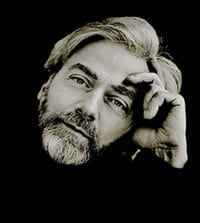 Although Krystian Zimerman is a former winner of the Chopin Competition in Warsaw, he has lived in Switzerland and not given concerts in Poland for 10 years. He returns this month for a very special occasion – from February 5 – 13, this outstanding Polish pianist will give five concerts, commemorating the centenary of Polish composer Grażyna Bacewicz (February 5, 1909 – January 17, 1969). 2009 marks the 100th anniversary of Bacewicz’s birth and the 40th anniversary of her death.
Although Krystian Zimerman is a former winner of the Chopin Competition in Warsaw, he has lived in Switzerland and not given concerts in Poland for 10 years. He returns this month for a very special occasion – from February 5 – 13, this outstanding Polish pianist will give five concerts, commemorating the centenary of Polish composer Grażyna Bacewicz (February 5, 1909 – January 17, 1969). 2009 marks the 100th anniversary of Bacewicz’s birth and the 40th anniversary of her death.
Speaking at a press conference in Katowice, Mr. Zimerman said the following of his connection to Bacewicz:
Many years ago Bacewicz was just one of many composers whose music I performed. Today, she is someone very special to me, someone whom I greatly respect. I have corresponded with her sister, Wanda, for thirty years. Grażyna Bacewicz died before I started my career but having talked to many of her friends I feel I know her very well… Bacewicz’s music is absolutely unique. I would like my tour and the recording to give a stimulus, if only a small one, to the promotion of her music.
The above quote is from a Polish Radio report on the concert series. To read or listen to more, please visit: polskieradio.pl.
Joining Mr. Zimerman in this endeavor will be Kaja Danczowska (1st violin), Agata Szymczewska (2nd violin), Ryszard Groblewski (viola) and Rafal Kwiatkowski (cello). The program will include Bacewicz’s 2nd Sonata, and Piano quintets No 1 & 2. The same ensemble will record an upcoming CD for Deutsche Grammophon, the sessions will begin right after the tour is finished.
Venues and dates for the concerts are as follows:
February 2: Artur Rubinstein Philharmonic in Łódź. at 7:00 p.m.
February 6: Warsaw University – Auditorium Maximum at 7:00 p.m.
February 8: Mickiewicz University Hall in Poznań at 7:00 p.m.
February 10: Jagiellonian University – Auditorium Maximum in Kraków at 7:00 p.m.
February 13: Szymanowski Music Academy in Katowice at 7:00 p.m.
Krystian Zimerman will perform these concerts in Poland without pay and the income he would have received will be donated to charity. Tickets are on sale at Warszawski Impresariat Muzyczny.
[Sources: culture.pl, muzyka.onet.pl, polskieradio.pl]
Penderecki U.S. Premiere
 In celebration of Krzysztof Penderecki’s 75th birthday and the Quartet’s 25th, the Shanghai Quartet will perform a new composition by one of the world’s most astonishing and influential living composers. The concert, on February 21st at 8:00PM at the Alexander Kasser Theater, will include the American Premiere of Penderecki’s String Quartet No. 3 “Leaves from an Unwritten Diary,” as well as Mozart’s D minor Quartet k.421, and Debussy’s Quartet. Quartet No. 3 was commissioned by Peak Performances @ Montclair and the University of Richmond in honor of the Shanghai Quartet’s 25th Anniversary and Maestro Penderecki’s 75th Birthday. Generous support has been provided by the Polish Cultural Institute.
In celebration of Krzysztof Penderecki’s 75th birthday and the Quartet’s 25th, the Shanghai Quartet will perform a new composition by one of the world’s most astonishing and influential living composers. The concert, on February 21st at 8:00PM at the Alexander Kasser Theater, will include the American Premiere of Penderecki’s String Quartet No. 3 “Leaves from an Unwritten Diary,” as well as Mozart’s D minor Quartet k.421, and Debussy’s Quartet. Quartet No. 3 was commissioned by Peak Performances @ Montclair and the University of Richmond in honor of the Shanghai Quartet’s 25th Anniversary and Maestro Penderecki’s 75th Birthday. Generous support has been provided by the Polish Cultural Institute.
The music of Krzysztof Penderecki is both stunningly original and refreshingly accessible. Celebrated primarily for his large-scale compositions, Penderecki has limited his output in the chamber music genre to a few select pieces. The Quartet No. 3 thus represents a significant addition to the composer’s oeuvre.
The work is infused with the rich tonal palette and unique, lush harmonies that have made Penderecki one of the world’s most innovative and exceptional composers. The Quartet No. 3 is in part an autobiographical work, containing motifs pertaining to the composer’s childhood, including as one of its themes a Hutsul folk melody. As Penderecki describes it, “while composing the quartet, I remembered that melody, which I had frequently heard played by my father. I made use of this theme, which grew in successive variations and almost took over my whole composition.” The entire piece represents a sentimental voyage by the composer.
The Shanghai Quartet has earned a reputation as one of the world’s outstanding string quartets, performing in the world’s leading concert halls. Currently in residence at Montclair State University, this premiere ensemble was formed in Shanghai 25 years ago and is known for passionate musicality, astounding technique, and multicultural innovations. The Shanghai Quartet has worked with the world’s most distinguished artists and regularly tours the major music centers of Europe, North America, and Asia.
[Source: Polish Cultural Institute NYC]
Canadian Premieres
For its penultimate concert in this season’s New Music Alberta Concert Series, the Edmonton Composers’ Concert Society (ECCS), in collaboration with the North American Saxophone Alliance Region 9 Conference, will present seven concerti for saxophone solo and full chamber orchestra. The concert, entitled “…of ghosts and daemons…,” will be presented on Sunday, February 15 at 8:00 P.M. at Convocation Hall in the Old Arts Building on the University of Alberta campus.
This performance will feature the Canadian premieres of works by the following Polish-Canadian composers:
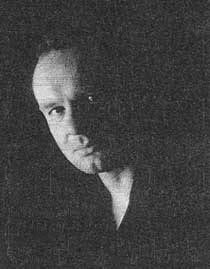 Jacek Sobieraj: On the Meadow of Herbivorous Ghosts for Saxophone and Orchestra (2006), performed by saxophone soloist Jeremy Brown (Calgary)
Jacek Sobieraj: On the Meadow of Herbivorous Ghosts for Saxophone and Orchestra (2006), performed by saxophone soloist Jeremy Brown (Calgary)
 Piotr Grella-Możejko: Dream Daemon – Concerto for Changing Saxophone and Orchestra (2006), performed by saxophone soloist Allison Balcetis (Edmonton)
Piotr Grella-Możejko: Dream Daemon – Concerto for Changing Saxophone and Orchestra (2006), performed by saxophone soloist Allison Balcetis (Edmonton)
Other composers on the program are Jacobus Kloppers, George Andrix, Thom Golub, Alex Eddington, and Charles Stolte.
The composers of the works chose the soloists through a western Canada-wide competition. These artists will be accompanied by the Edmonton Chamber Orchestra under the direction of the outstanding Polish conductor and composer Maestro Jacek Rogala.
POLMIC – 2008 In Review
The Polish Music Information Centre in Warsaw has published a very interesting article entitled “2008 in Polish Music – A Subjective View,” which highlights the most important events of the musical year, in Poland and for Polish musicians around the world. The Polish Music Information Centre (POLMIC) is closely linked to the Polish Composers Union [ZKP] as well as the Warsaw Autumn Contemporary Music Festival [Warszawska Jesień], two of the most influential forces in the classical music scene in Poland today. Thus, this article and all of the information on the POLMIC website lends insight into the rich treasure of music that is available in Poland every day. Please see the POLMIC website to read the article: www.polmic.pl.
Report From MIDEM 2009
![]() MIDEM (Marché International du Disque et de l’Edition Musicale) is the world’s largest music industry trade fair, which has been held annually at the Palais des Festivals in Cannes, France, since 1967. Bringing together musicians, businesspeople, cultural policy makers, and journalists from many countries, it provides a forum to discuss business, political and legal issues, as well to showcase new artists, musical trends and music-related products. This year’s edition ran from January 18 – 21, 2009.
MIDEM (Marché International du Disque et de l’Edition Musicale) is the world’s largest music industry trade fair, which has been held annually at the Palais des Festivals in Cannes, France, since 1967. Bringing together musicians, businesspeople, cultural policy makers, and journalists from many countries, it provides a forum to discuss business, political and legal issues, as well to showcase new artists, musical trends and music-related products. This year’s edition ran from January 18 – 21, 2009.
As part of the Polish presentation at MIDEM 2009, a movie based around a live concert recording of Krzysztof Penderecki’s Seven Gates of Jerusalem, with animations by Tomasz Bagiński, had its premiere on January 18. The hour-long film was directed by Jarosław Minkowicz and produced by the Polish Television. The material in the movie was recorded on November 23, 2008 during Penderecki’s 75th birthday concert at the National Theatre in Warsaw, which was conducted by the composer. During this live production, the animations created by Bagiński were shown on large screens and were mixed with traditional stage design by Boris Kudilcka. The Polish premiere of the film will take place on February 22 on Polish Television channel 2.
Since 2005, MIDEM has hosted the MIDEM Classical Awards, and over the years nominations and awards have gone to many Polish artists. This year the nominee from Poland was in the Opera category: a recording of Cherubini’s Lodoiska conducted by Łukasz Borowicz with Polish Radio Symphony Orchestra and Choir. Unfortunately, this year the award went to the Deutsche Grammophon recording of Janaczek’s The Excursions of Mr. Broucek. For a complete list of this year’s winners please visit www.midemclassicalawards.com/winners.
Poland To Be Honored At MIDEM 2010
Poland will be the featured country in the classical and jazz categories during the 2010 MIDEM conference in Cannes. This means that there will be multitude of concerts by the most recognized Polish artists, ensembles, and acts. Although Polish representatives have not yet released information about possible invitations, one can expect that all the stops will be pulled put.
Chopin Classical Award
In celebration of the 200th birthday anniversary of Frederic Chopin, MIDEM will begin to present a special Chopin Classical Award in 2010. The award will be divided into two sub-categories. The first category will be for any and all available Chopin recordings, even those from 20-30 years ago. Second category is limited to releases from the previous year. Although only the second category will continue past 2010, the award itself will retain the name.
Project Chopin
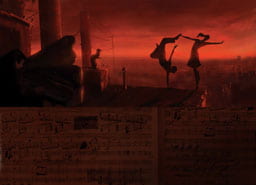 London’s Breakthru Studios in cooperation with the Polish studio Se-ma-for in Łódź are preparing a new animated film titled Project Chopin.
London’s Breakthru Studios in cooperation with the Polish studio Se-ma-for in Łódź are preparing a new animated film titled Project Chopin.
Project Chopin will consist of a 30 minute puppet animation, a quasi-documentary combining the “making of” and the animated impression, and twenty-four 2-minute animated etudes. The music will consist entirely of Frederic Chopin compositions, arranged by Jan A.P. Kaczmarek. The film is directed by Martin Clapp and Adam Wyrwas, who worked together on the recent Oscar-winning Peter and Wolf animated film,based on the musical tale by Sergey Prokofiev. The animation is filmed in Łódź as well as studios in Canada and Great Britain. The premiere of the movie is planned for 2010 to celebrate the 200th birthday of Frederic Chopin and will have two parts: first in National Theater in Warsaw and then in O2 Arena in London.
The movie tells a story of two teenage dancers living in magical world and experiencing their first love. Naturally, they will be dancing to the music of Frederic Chopin.
During a press conference at MIDEM on January 19, the producers presented an exclusive short teaser animation prepared especially for the MIDEM. The actual production will start in the summer of 2009 and the premiere is tentatively scheduled for August 2010 in Warsaw. The production will be widely distributed and showed in theaters.
You can find out more by visiting www.breakthrufilms.co.uk/uk/films/chopin/synopsis or www.breakthrufilms.co.uk/pl for the Polish version.
[DK]
[Sources: infochopin.pl; midemclassicalawards.com; rmfclassic.pl; muzyka.onet.pl; breakthrufilms.co.uk; rmfclassic.pl]
Wiłkomirska Documentary
 Polish Television Channel 1 has aired Ja wam to zagram [I will play it for you] a documentary film about the greatest Polish female violinist of the 20th century, Wanda Wiłkomirska. She has just recently celebrated her 80th birthday in Warsaw with a concert at the National Philharmonic. Read an article about the gala concert in her honor, including biography, on the Polish Radio website.
Polish Television Channel 1 has aired Ja wam to zagram [I will play it for you] a documentary film about the greatest Polish female violinist of the 20th century, Wanda Wiłkomirska. She has just recently celebrated her 80th birthday in Warsaw with a concert at the National Philharmonic. Read an article about the gala concert in her honor, including biography, on the Polish Radio website.
The authors of the film, Christine Jezior and Maciej Białobrzeski, accompanied Wiłkomirska for a year—following her around three continents and performing interviews with family and prominent friends such as Kurt Masur, Krzysztof Penderecki, Antoni Wit, Tadeusz Strugała and Daniel Olbrychski. The film is narrated by Wiłkomirska herself, telling dramatic stories of her life. She is completely open in front of the camera. Background music includes works by Brahms, Tchaikovsky and Szymanowski, whose compositions Wiłkomirska tirelessly promotes around the world.
[Source: wyborcza.pl, tvp.pl]
Cantores Minores Premiere
By Joseph A. Herter, conductor of Cantores Minores
 On February 4th, the Warsaw Boys’ Choir “Cantores Minores” will perform the World Premiere of Vittorio Giannini’s Missa ‘Adeste fidelis.’ The question that many might ask is how an unpublished and unperformed setting of the Mass ordinary—written in the United States by Vittorio Giannini, of Italian immigrant heritage, in 1943—is to receive its world premiere in Poland 66 years later. Last summer, the undersigned delivered a paper on the roles of Polish soprano Marcella Sembrich and composer Zygmunt Stojowski in the Polish relief effort during World War I. Incidental to that event, I also compiled a list of songs dedicated to Sembrich. One of these was a song by Giannini entitled, Tell Me, Oh Blue, Blue Sky, written in 1927, Dedicated most respectfully to Madame Marcella Sembrich. The find piqued my curiosity, and basic encyclopedic research led me to a mention of a Mass based on the carol Adeste fideles among the composer’s compositions.
On February 4th, the Warsaw Boys’ Choir “Cantores Minores” will perform the World Premiere of Vittorio Giannini’s Missa ‘Adeste fidelis.’ The question that many might ask is how an unpublished and unperformed setting of the Mass ordinary—written in the United States by Vittorio Giannini, of Italian immigrant heritage, in 1943—is to receive its world premiere in Poland 66 years later. Last summer, the undersigned delivered a paper on the roles of Polish soprano Marcella Sembrich and composer Zygmunt Stojowski in the Polish relief effort during World War I. Incidental to that event, I also compiled a list of songs dedicated to Sembrich. One of these was a song by Giannini entitled, Tell Me, Oh Blue, Blue Sky, written in 1927, Dedicated most respectfully to Madame Marcella Sembrich. The find piqued my curiosity, and basic encyclopedic research led me to a mention of a Mass based on the carol Adeste fideles among the composer’s compositions.
The music of Giannini is not known in Poland for several reasons. Among his most successful works are songs and operas written in English, a language, which for the most part, has not yet been welcomed by Polish singers or opera companies into their standard repertoire. Equally appealing are his beautiful works for concert band which are included in the canon of the repertoire of North American wind ensembles (the excellent Third Symphony for Band, to name one). In Poland, the performance tradition of serious music for concert bands is not as well entrenched. Indeed, were it not for the fact that both of Giannini’s sisters studied with the brilliant Marcella Sembrich at the Curtis Institute where the celebrated star headed the vocal department, the Polish-Italian-American connection might never have been made. In the summer of 1927, the composer accompanied his sisters to Sembrich’s summer home and teaching studio at Bolton Landing on the shores of Lake George in upstate New York. It was here that he composed the earlier mentioned song for Pani Marcelina that continues to enjoy considerable popularity and is found in the repertoire of several famous singers in the English-speaking world, including soprano Roberta Alexander and baritone Thomas Hampson who have recorded the piece.
Missa ‘Adeste fidelis’ was written in 1943. Composed for men’s choir and organ during World War II, it makes one wonder if an all-male musical ensemble could have been available to Giannini. This may in fact be the reason that the work was put aside and has never before been performed.
Giannini was a Neo-Romantic who imbued his music with the aesthetics and principles of Romanticism, even when using Baroque forms such as the fugue or passacaglia. Certainly, he was a Traditionalist in a century of great musical change.
In his biographical entry for Giannini in Voices in the Wilderness (2006) Walter Simmons records that, despite his Italian upbringing, the composer was not a practicing Catholic. Nonetheless, he describes him as a “spiritual person.” In any case, this non-practicing, spiritual Catholic left a considerable legacy of sacred music. In addition to the Mass, his catalogue includes the following religious works: a large-scale Requiem Mass; a piece for double bass and orchestra inspired by Psalm 130 (De profundis clamavi ad te, Domine), Four Devotional Motets for choir a cappella, A Christmas Canticle for choir and orchestra as well as an unfinished tetrology of operas based on the life of Christ.
Vittorio Giannini died in 1966 at the age of 63.
Lutosławski Postgraduate Scholarship
![]() The Management Board of the Witold Lutosławski Society has announced that, acting on behalf of the Composer’s family, in the year 2009 the Society can grant one Witold Lutosławski scholarship for postgraduate studies abroad, in the amount of $10,000 USD. Those eligible for this scholarship are: graduates of Polish nationality who completed their studies in music academies and music universities in Poland, including instrumentalists of various kinds, singers, composers and conductors.
The Management Board of the Witold Lutosławski Society has announced that, acting on behalf of the Composer’s family, in the year 2009 the Society can grant one Witold Lutosławski scholarship for postgraduate studies abroad, in the amount of $10,000 USD. Those eligible for this scholarship are: graduates of Polish nationality who completed their studies in music academies and music universities in Poland, including instrumentalists of various kinds, singers, composers and conductors.
Applications with the required documents (such as the Polish degree, proof of passing entrance exams to the foreign academy of their choice, a list of achievements, incl. competitions and concerts, as well as reference letters from two academic lecturers with professorial titles) must be submitted by 15 February 2009 to: Witold Lutosławski Society, ul. Bracka 23, 00-028 Warszawa, POLSKA.
Jadwiga Rappé, President of the Witold Lutosławski Society Management Board
[Source: www.polmic.pl]
Fitelberg’s Chanson Triste Online
 A rare sound recording of the Chanson Triste [Sad Song] for piano by Grzegorz Fitelberg can be viewed on YouTube: www.youtube.com. Chanson Triste was published in Warsaw in 1900 by the Association des Employés en Libraries – Société à Responsabilité Limitée [Association of Bookstore Employees – a Limited Liability Company]. It was also published as an insert in the January 1, 1911 issue of Echo Muzyczne[Musical Echo] in Warsaw.
A rare sound recording of the Chanson Triste [Sad Song] for piano by Grzegorz Fitelberg can be viewed on YouTube: www.youtube.com. Chanson Triste was published in Warsaw in 1900 by the Association des Employés en Libraries – Société à Responsabilité Limitée [Association of Bookstore Employees – a Limited Liability Company]. It was also published as an insert in the January 1, 1911 issue of Echo Muzyczne[Musical Echo] in Warsaw.
[GF]
Chopin Recital Cycle
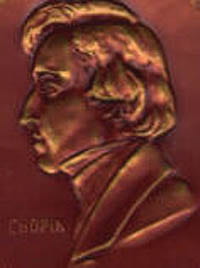 The National Frederic Chopin Institute is instituting a new series of Chopin piano recitals taking place at the Grand Theater – National Opera in Warsaw. Having started on January 27, the recitals will be held on fairly regular basis, eventually establishing a series of “Chopin Wednesdays.” The first artist to perform a solo recital was Nelson Goerner performing on a period instrument.
The National Frederic Chopin Institute is instituting a new series of Chopin piano recitals taking place at the Grand Theater – National Opera in Warsaw. Having started on January 27, the recitals will be held on fairly regular basis, eventually establishing a series of “Chopin Wednesdays.” The first artist to perform a solo recital was Nelson Goerner performing on a period instrument.
Eventually there will be three separate categories of the recitals: Masters – the most recognized and established artists; Debuts – the new and upcoming young talents; and Recommendations – artists invited by representatives of the world of culture and science.
[Source: infochopin.pl]
Year Of Sembrich Finale
 The Marcella Sembrich Opera Museum brings down the curtain on its “Year of Sembrich” with a special commemorative recital entitled “A Bouquet for Marcella Sembrich” in the Helen Froehlich Auditorium of the Hyde Collection in NY. The evening will feature many of the soprano arias made famous by the Polish-born prima donna during her long career at the Metropolitan Opera in New York, as performed by soprano Megan Weston and pianist Michael Fennelly. The recital will be performed on the centennial of Madame Sembrich’s farewell at the Metropolitan Opera.
The Marcella Sembrich Opera Museum brings down the curtain on its “Year of Sembrich” with a special commemorative recital entitled “A Bouquet for Marcella Sembrich” in the Helen Froehlich Auditorium of the Hyde Collection in NY. The evening will feature many of the soprano arias made famous by the Polish-born prima donna during her long career at the Metropolitan Opera in New York, as performed by soprano Megan Weston and pianist Michael Fennelly. The recital will be performed on the centennial of Madame Sembrich’s farewell at the Metropolitan Opera.
“A Bouquet for Marcella Sembrich”
Saturday, February 7 at 7:00 PM
The Hyde Collection – Helen Froehlich Auditorium
161 Warren Street, Glens Falls, NY 12801
Tickets & information: (518) 644-2431
A champagne reception will follow the performance.
Jan A.P. Kaczmarek’s Projects
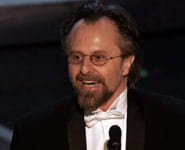 Jan A.P. Kaczmarek has started work on a new movie—The Horsemen, directed by Swedish director Jonas Akerlund. This Academy Award-winning composer says that the new score is going to be very dark and brutal, just like the movie. Kaczmarek admits that this is not the kind of movies he goes to see, but from the composer’s perspective it was a good challenge to write a fitting score. The premiere of the movie is scheduled for May 2009.
Jan A.P. Kaczmarek has started work on a new movie—The Horsemen, directed by Swedish director Jonas Akerlund. This Academy Award-winning composer says that the new score is going to be very dark and brutal, just like the movie. Kaczmarek admits that this is not the kind of movies he goes to see, but from the composer’s perspective it was a good challenge to write a fitting score. The premiere of the movie is scheduled for May 2009.
Recently, another movie with Kaczmarek’s music had its premiere. The Visitor, directed by Thomas McCarthy, tells a story of college professor and recent widower, Walter Vale (played by Richard Jenkins, who has a 2009 Oscar nomination for this performance), who discovers a pair of illegal aliens who were the victims of a real-estate scam living in his New York apartment. Kacmarek speaks about his experience of scoring the film The Visitor in the L.A. Times article “Kacmarek – Music for ‘The Visitor’”:
“The Visitor” took me by surprise in how quickly and unexpectedly it took shape musically in my mind. In part, I think it was because at the core it is a musical film with a drum as its heartbeat. The drum sets the pace. It creates the basis that brings Walter Vale… out of his empty life. His first tentative taps on the djembe were to me like his sputtering heart waking up again.
[Sources: muzyka.onet.pl and imdb.com]
Slavic Duo In Irvine
Alicja Dutkiewicz, cello and Natasha Kislenko, piano will perform on Saturday, February 7th, at 4 PM at Irvine Valley College.
Widely regarded as an inspiring Polish musician of her generation, Alicja Dutkiewicz has achieved international success as a performer and teacher. Born in Warsaw into a distinguished family of musicians, Miss Dutkiewicz first came to the United Sates in 1987 to continue her music education and was awarded scholarships for both her graduate and post-graduate studies. She graduated from Eastman School of Music and earned her Masters Degree in Cello Performance at the University of Southern California. She is an avid chamber musician who has collaborated with distinguished artists including Yo-Yo Ma, Paul Katz and James Buswell. She performed live on National Public Radio with the Australian pianist Piers Lane and has participated in the Australian Chamber Music Festival and Winter School as a performer teacher.
Pianist Natasha Kislenko has concertized extensively as a soloist and a chamber musician throughout Russia, Europe and the United States. Critics praise her “great artistry,” “perfect technique,” and “extraordinary richness of nuance and color.” Born in Moscow, Russia, Ms. Kislenko began piano studies when she was six, gave her first solo Moscow recital at fourteen, and appeared with several symphony orchestras while still in the Special Music School for Gifted Children of the Moscow State Tchaikovsky Conservatory
Saturday, February 7th – 4 PM
Irvine Valley College
Alicja Dutkiewicz, cello
Natasha Kislenko, piano
Polish Music In Massachusetts
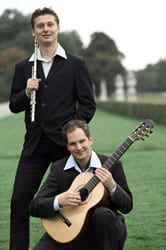 Krzysztof Kaczka (flute) and Perry Schack (guitar), the Polish artists of the ensemble Duo Artus, will perform a Polish-German concert at the Goethe-Institut Boston on February 10th. The event is presented by the Consul General of the Federal Republic of Germany in Boston and by the Honorary Consul of the Republic of Poland in Boston.
Krzysztof Kaczka (flute) and Perry Schack (guitar), the Polish artists of the ensemble Duo Artus, will perform a Polish-German concert at the Goethe-Institut Boston on February 10th. The event is presented by the Consul General of the Federal Republic of Germany in Boston and by the Honorary Consul of the Republic of Poland in Boston.
Duo Artus Concert
Tuesday, February 10, 8:00pm
170 Beacon Street, Boston
More Info: (617) 369-4910 or culture@bost.diplo.de
An exceptional Polish jazz duo comprised of Bogdan Holownia – piano and Bronek Suchanek – bass will perform a concert entitled “All That Jazz” at the Polish American Citizens Club. The concert will go from 7:30 – 10 PM including one intermission.
All that Jazz Concert
Friday, February 20, 7:30pm
Polish American Citizens Club
2nd Floor Reception Hall
82 Boston Street, Dorchester, MA 02125
Tickets & more info: (781) 694-4049 or martamalina@comcast.net
Szymanowski/Skowronski On The Radio
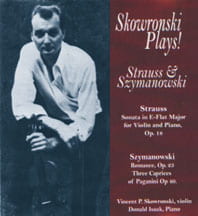 WFIU-FM radio at Indiana University – Bloomington will program the rarely recorded and/or heard Romans [Romance] in D Major by Karol Szymanowski. The online broadcast is scheduled for February 22nd at 7:10pm (EST). The violinist is Vincent P. Skowronski and the pianist is Donald Isaak. The recording is from the CD entitled Skowronski Plays! Strauss & Szymanowski.
WFIU-FM radio at Indiana University – Bloomington will program the rarely recorded and/or heard Romans [Romance] in D Major by Karol Szymanowski. The online broadcast is scheduled for February 22nd at 7:10pm (EST). The violinist is Vincent P. Skowronski and the pianist is Donald Isaak. The recording is from the CD entitled Skowronski Plays! Strauss & Szymanowski.
According to violinist Vincent P. Skowronski, the Romance was an unusual work for violin and piano by Karol Szymanowski, in that it was a long and curiously expansive exercise. The framework allows Szymanowski more than ample time to considerably develop thematic material for BOTH instruments. As well, the composition calls for the placement of the violin in an extremely high tessitura, which (as in most all of Szymanowski’s works for violin and piano) demands that the instrument be stretched to its limits. Needless to say, it is an extremely difficult work. However, it must never appear to be or sound……… difficult. [comments given via email]
21st Century Berlin Philharmonic
 The world renowned Berlin Philharmonic has made their live performances available for streaming online. They have created a beautiful website, dch.berliner-philharmoniker.de, on which all live performances of the orchestra can be viewed. The subscription is a paid service, with options from a single concert to full access for a season.
The world renowned Berlin Philharmonic has made their live performances available for streaming online. They have created a beautiful website, dch.berliner-philharmoniker.de, on which all live performances of the orchestra can be viewed. The subscription is a paid service, with options from a single concert to full access for a season.
The upcoming featured Polish composition is Witold Lutosławski’s Concerto for Orchestra on March 14.
Although the service offers three stream quality settings, to experience the best sound and picture quality a fast internet connection is necessary—and the result is stunning.
[Source: wiadomosci.wp.pl]
Awards
Diamond Baton For Skrowaczewski
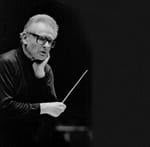 The prestigious “Diamond Baton” Award given by Polish Radio has been awarded to Stanisław Skrowaczewski. The award was given to maestro Skrowaczewski during a concert on January 9, which featured music of Lutosławski and Beethoven performed by the Polish Radio National Symphony Orchestra in Katowice.
The prestigious “Diamond Baton” Award given by Polish Radio has been awarded to Stanisław Skrowaczewski. The award was given to maestro Skrowaczewski during a concert on January 9, which featured music of Lutosławski and Beethoven performed by the Polish Radio National Symphony Orchestra in Katowice.
Stanisław Skrowaczewski studied at the State Higher Music School in Kraków and later in Paris with Nadia Boulanger and Paul Klecki. Over the years he held several post in Poland, from Katowice to Kraków, and around the world, from Minneapolis to Manchester. He has conducted most of the world’s best orchestras, and is currently the Conductor Laureate of the Minnesota Orchestra, Principal Guest Conductor of the Deutsche Radio Philharmonie (formerly Saarbrucken Radio Symphony Orchestra) and Principal Conductor of the Yomiuri Nippon Symphony Orchestra in Tokyo.
The Diamond Baton is an award established by the Polish Radio to honor conductors for outstanding artistic creations and promotion of Polish music in Poland and abroad. Jan Krenz, Stefan Rachoń, Stanisław Wisłocki, Antoni Wit, Krzysztof Penderecki, Kazimierz Kord, Stefan Stuligrosz, Jerzy Maksymiuk and Jerzy Semkow are among the previous recipients of the award.
[Sources: muzyka.onet.pl, culture.pl]
Stojowski “Best of February”
 Zygmunt Stojowski
Zygmunt Stojowski
Zygmunt Stojowski: Suite in E flat Major for symphonic orchestra Op. 9; Le Printemps, Op. 7; Prayer for Poland, Op. 40
Podlasie Philharmonic Orchestra and Choir in Białystok, Marcin Nałęcz-Niesiołowski – conductor, Marta Wróblewska – soprano, Maciej Nerkowski – baritone, Rafał Sulima – organ
DUX 0625
Gramophone Magazine has deemed this recording of music by Zygmunt Stojowski performed by Podlasie Philharmonic Orchestra and Choir in Białystok as one of its top 10 recordings of February 2009. Also among those featured is Marc-André Hamelin’s recording of Chopin’s Piano Sonatas Nos. 2 & 3 on Hyperion.
According to the Gramophone website: “The ever-enterprising Polish label Dux continues to mine that country’s musical history with fascinating results. There are other labels championing the work of Zygmunt Stojowski but he is still an under-appreciated figure. And these Polish forces are predictably idiomatic. It’s all very approachable and, with performances of such obvious pride as these, very compelling.”
Read another review here: www.usc.edu/dept/polish_music/news/june08.html#discog
BBC Music Magazine Accolades
 This recording of Szymanowski’s choral music—featuring Iwona Hossa (soprano), Ewa Marciniec (mezzo-soprano), Jaroslaw Brek (baritone), and the Warsaw Philharmonic Choir and Orchestra, Antoni Wit, cond.—has been nominated for the 2009 BBC Music Magazine Award.
This recording of Szymanowski’s choral music—featuring Iwona Hossa (soprano), Ewa Marciniec (mezzo-soprano), Jaroslaw Brek (baritone), and the Warsaw Philharmonic Choir and Orchestra, Antoni Wit, cond.—has been nominated for the 2009 BBC Music Magazine Award.
The awards jury says the following about the disc:
Suffused with the mystical fervour of Polish Catholicism, this largely sacred programme delivers a richly atmospheric Stabat mater (the grieving mother palpably human) alongside an expansive Veni creator whose ecstatic visionary ending blazes. Two classical Greek pendants add rarity value to a warmly compelling disc. Paul Riley
Visit www.bbcmusicmagazine.com/awards to see all the nominees and to vote for your favorite. This disc is available from Naxos Records (8.570724).
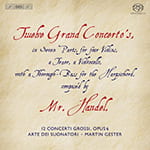 A recording of Handel’s Concerti Grossi performed by the Polish Arte Dei Suonatori orchestra for BIS Records (SACD-1705/06) was honored by BBC Music Magazine as the Orchestral CD of the Month in January 2009. It was also honored as one of the 2008 CDs of the Year by Hi-Fi Muzyka monthly magazine.
A recording of Handel’s Concerti Grossi performed by the Polish Arte Dei Suonatori orchestra for BIS Records (SACD-1705/06) was honored by BBC Music Magazine as the Orchestral CD of the Month in January 2009. It was also honored as one of the 2008 CDs of the Year by Hi-Fi Muzyka monthly magazine.
Arte Dei Suonatori is a baroque orchestra in a true meaning of the word. They perform on period instruments, and strictly follow the performance traditions and musical thought processes of the time. Their recordings have been praised and honored by Diapason d’Or, Gramophone Editor’s Choice, Choc du Monde de la Musique, Luister 10, 10 de Repertoire, Classics Today, and Classic CD.
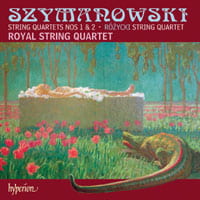 In the February issue of BBC Music Magazine, the Chamber CD of the Month is a recording of String Quartets by Szymanowski and Różycki, performed by the Royal String Quartet in their debut CD for the Hyperion label (CDA67684).
In the February issue of BBC Music Magazine, the Chamber CD of the Month is a recording of String Quartets by Szymanowski and Różycki, performed by the Royal String Quartet in their debut CD for the Hyperion label (CDA67684).
The all-Polish Royal String Quartet is one of the most interesting and dynamically developing string quartets of the young generation. They are particularly acclaimed for their performances of music from their homeland, and have received the Special Prize of the Polish Ministry of Culture and National Heritage ‘in recognition of their contribution to Polish culture.’ [Hyperion website]
[Source: www.polmic.pl]
Polityka Passports
Polityka Magazine has announced the recipients of its 2009 Passport Awards. In the Classical Music category the award was given to singer Artur Ruciński. Ruciński is a graduate of the F. Chopin Music Academy in Warsaw. He is a laureate of numerous national and international competitions. He has performed with Warsaw Chamber Opera, Mazovian Music Theater, National Opera in Warsaw and Kraków Opera. He has recorded for DUX.
 Winners of other categories are – Popular Music: Maria Peszek, Literature: Sylwia Chutnik, Film: Małgorzata Szumowska, Theater: Paweł Łysak, Visual Arts: Maciej Kurak, and Creator of Culture Special Award: Krystian Lupa.
Winners of other categories are – Popular Music: Maria Peszek, Literature: Sylwia Chutnik, Film: Małgorzata Szumowska, Theater: Paweł Łysak, Visual Arts: Maciej Kurak, and Creator of Culture Special Award: Krystian Lupa.
The award ceremony took place on January 13, 2009 during a gala in the Grand Theater-National Opera.
[Sources: culture.pl, wyborcza.pl]
Wasilewski Makes Best Of 08 List
 January
January
Marcin Wasilewski Trio: Marcin Wasilewski piano, Sławomir Kurkiewicz double-bass, Michał Miśkiewicz drums
ECM2019
Walter Tunis, contributing music columnist for Kentucky.com, gave this review:
As Tord Gustavsen did last year on Being There, Polish pianist Wasilewski created an ECM record of understated instrumental grace that is jazz by definition more than execution. I’ve listened to no other 2008 album more than this one.
Diapason d’or for “Real Chopin”
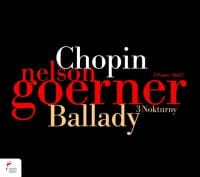 The French music magazine, Diapason, has awarded its prestigious Diapason d’or nouveauté award to two CDs from the Real Chopin series published by the Frederic Chopin National Institute. Both CDs were recorded by pianist Nelson Goertner—the first one is a recording of Ballades and Nocturnes and the second is a recording of Works for Piano and Orchestra with the Orchestra of the 18th Century conducted by Frans Brüggen.
The French music magazine, Diapason, has awarded its prestigious Diapason d’or nouveauté award to two CDs from the Real Chopin series published by the Frederic Chopin National Institute. Both CDs were recorded by pianist Nelson Goertner—the first one is a recording of Ballades and Nocturnes and the second is a recording of Works for Piano and Orchestra with the Orchestra of the 18th Century conducted by Frans Brüggen.
[Source: infochopin.pl]
Chopin Concertos: CD Of The Week
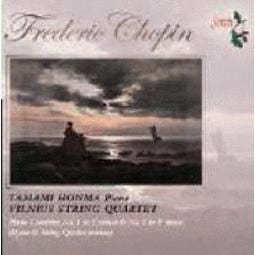 Chopin: Piano Concertos No 1 and No 2
Chopin: Piano Concertos No 1 and No 2
Tamami Honma, piano, and the Vilnius String Quartet
Somm CD061
A new recording of Chopin’s Piano Concertos, Nos. 1 and 2, arranged for piano and chamber ensemble by Bartlomiej Kominek (based on earlier transcriptions by Kazimierz Sikorsk) is available from the British independent CD label SOMM Recordings. Performers are Tamami Honma and the Vilnius String Quartet. Stephen Pritchard, a reviewer for the London Observer, gives the following historical background and performance review for the recording in the “CD of the Week” section:
Frédéric Chopin was praised in an 1838 review as ‘the most delightful of pianists in the drawing room’, but the reviewer added that the ‘animation of his style is so subdued, its tenderness so refined… that when exhibited in the larger concert room or thronged salon it fails to impress itself on the mass’. So it is entirely possible that he would have preferred to play his concertos in intimate, domestic surroundings, as displayed in this latest intriguing reduction for piano and string quartet. [14 December 2008]
Read the entire article here: www.guardian.co.uk/music/2008.
Young Scholarship Winner In NY
The Tonawanda News reported the following story on January 6, 2008 about a young organist of Polish descent who is carrying on a legacy in upstate NY.
[On Sunday, January 5th], one of North Tonawanda’s most talented young musicians took the helm of one of the finest all-around pipe organs in the region to make sure the music was as close to heavenly as possible. Daniel Pisarcik, 14, commanded the church’s massive three keyboard, 32-pipe-set instrument for worshippers in the same house where it was built about 70 years ago, by Polish maker A. Radziewicz of New Jersey… [the] church performance Sunday was due to his third straight year winning the Buffalo Dioceses’ Monsignor Kawalec Young Organist Scholarship. The scholarship was $500 for the past two years Pisarcik won, and this year it was $250. He is one of two recipients this year.
Read the entire article here: www.tonawanda-news.com.
Festivals
XIII Lutosławski Forum
 This year’s edition of the Lutosławski Forum will take place between February 14 and 20 in its usual home – the National Philharmonic in Warsaw. As is the tradition, the festival will present works of Witold Lutosławski as well as other contemporary and less contemporary composers. The program of the festival includes works by Michael Tippet, Kurt Weil, a full concert of music by Grażyna Bacewicz, and world premieres of Grażyna Pstrokońska-Nawratil’s untitled work for saxophone, percussion and organ and Stanisław Moryto’s Ode to St. Cecillia.
This year’s edition of the Lutosławski Forum will take place between February 14 and 20 in its usual home – the National Philharmonic in Warsaw. As is the tradition, the festival will present works of Witold Lutosławski as well as other contemporary and less contemporary composers. The program of the festival includes works by Michael Tippet, Kurt Weil, a full concert of music by Grażyna Bacewicz, and world premieres of Grażyna Pstrokońska-Nawratil’s untitled work for saxophone, percussion and organ and Stanisław Moryto’s Ode to St. Cecillia.
You can find the full program of the festival at polmic.com or www.filharmonia.pl.
[Source: polmic.com]
Czubala And Mina At C.Sides
 This year’s C.SIDES Electronic Music Festival in Tel Aviv offers an outstanding opportunity to catch up on Poland’s best club and electronic music. Marcin Czubala, a musician with classical-music background, will expose the Israeli audience to her unique minimal classic-techno sound. Also performing at C.SIDES is Asi Mina, a Polish artist well known for her special performing style and her musical projects for children.
This year’s C.SIDES Electronic Music Festival in Tel Aviv offers an outstanding opportunity to catch up on Poland’s best club and electronic music. Marcin Czubala, a musician with classical-music background, will expose the Israeli audience to her unique minimal classic-techno sound. Also performing at C.SIDES is Asi Mina, a Polish artist well known for her special performing style and her musical projects for children.
C.SIDES is the most important international electronic music festival in Israel. It takes place every two years, attracting a steadily growing audience and ever more interesting artists. The British Council and the Goethe Institute are also partners with the festival.
C.SIDES Electronic Music Festival
11-14 February
Kaliff Club: Hazorfim 33, Old Jaffa
Marcin Czubala, left
[Source: polishinstitute.org.il]
Performances
Penderecki Festival Review
 Jan Popis of the Warsaw Voice has written a detailed review of the Penderecki Festival, which celebrated the 75th anniversary of the great Polish composer and conductor, Krzysztof Penderecki. This Festival was one of the premiere classical music events in the musical life of Poland last year. Popis writes:
Jan Popis of the Warsaw Voice has written a detailed review of the Penderecki Festival, which celebrated the 75th anniversary of the great Polish composer and conductor, Krzysztof Penderecki. This Festival was one of the premiere classical music events in the musical life of Poland last year. Popis writes:
[The] festival was held Nov. 20-23 in Warsaw’s leading concert halls: the National Philharmonic, the Royal Castle and the Wielki Theater/National Opera. It was organized, on a scale and in a format in keeping with the composer’s stature, by the Ludwig van Beethoven Society.
Four days with the music of just one composer, and contemporary music to boot, may have seemed a risky project, especially with two or even three concerts held on each of the festival days. Actually, that was one of the discoveries of this festival: you listen to Penderecki the same way you listen to the kind of fundamental concert repertoire that the works of Bach, Beethoven or Schubert are regarded to be. His music remains open for creative performers. This was another important aspect of the festival—new, creative interpretations from a large and excellent international group of musicians. Thanks to such musicians as violinists Viviane Hagner and Grigori Zhislin, viola player Tabea Zimmermann, cellists Arto Noras, Laszlo Fenyo, Claudio Bohorquez, Ivan Monigetti and Danjulo Ishizaka, flutist Massimo Mercelli and the Shanghai Quartet, to mention just a few, Penderecki’s music was offered with a broad range of flavors. [Warsaw Voice, 17 December 2008]
Read the entire review here: www.warsawvoice.pl.
Lutosławski In Seattle
The Seattle Chamber Music Society’s 11th annual Winter Music Festival took place from January 22-25 at the Nordstrom Recital Hall. Witold Lutosławski’s Dance Preludes for Clarinet and Piano was on the program of the first of 4 concerts, which provided a blend of 18th, 19th, and 20th century music. Reviewer R. M. Campbell writes the following about the inclusion of Lutosławski in the Seattle Post-Intelligencer:
Lutoslawski is not well-known at the festival — summer or winter, Seattle or the Eastside. It might consider more of the 20th-century Polish composer in the future, although he did not write much chamber music. Certainly there was nothing intimidating about this series of preludes, which have gone through various transmutations since their premiere in 1954. Clarinetist Sean Osborn and pianist Gilles Vonsattel got right to business, capturing their quick-silver rhythms and blend of different sensibilities. [January 23, 2009]
Read the entire article here: seattlepi.nwsource.com.
Dobrzanski In Irvine
 Slawomir Dobrzanski gave a Guest Artist Piano Recital at the Irvine Valley College Performing Arts Center on Saturday, January 31st at 8 PM. Mr. Dobrzanski is a versatile soloist and chamber musician, has performed in Poland, Germany, Switzerland, Belgium, Lithuania, Paraguay, Peru, and the United States. Also an accomplished scholar, he wrote Vol. 9 of the Polish Music History Series, Maria Szymanowska, based on his doctoral dissertation. He is a prizewinner of several competitions for young artists, including the Naftzger Young Artist Competition, the Lincoln Symphony Young Artist Competition, and the University of Connecticut Concerto Competition. He is also a recipient of the Donald DeLaski Artistic Fellowship Grant (2000).
Slawomir Dobrzanski gave a Guest Artist Piano Recital at the Irvine Valley College Performing Arts Center on Saturday, January 31st at 8 PM. Mr. Dobrzanski is a versatile soloist and chamber musician, has performed in Poland, Germany, Switzerland, Belgium, Lithuania, Paraguay, Peru, and the United States. Also an accomplished scholar, he wrote Vol. 9 of the Polish Music History Series, Maria Szymanowska, based on his doctoral dissertation. He is a prizewinner of several competitions for young artists, including the Naftzger Young Artist Competition, the Lincoln Symphony Young Artist Competition, and the University of Connecticut Concerto Competition. He is also a recipient of the Donald DeLaski Artistic Fellowship Grant (2000).
Camerata Pacifica Plays Szymanowski
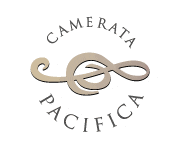 As a part of Camerata Pacifica’s ongoing monthly series, Szymanowski’s Violin Sonata (Op.9) was performed during the group’s lunchtime concerts in January. Also on the program was Prokofiev: Violin Sonata in F Minor, Messiaen: Le baiser de L’Enfant-Jésus, and Beethoven: Piano Sonata in F-sharp Major, Op.78. The performers were Nurit Pacht, violin and Anna Polonsky, piano. Camerata Pacifica is a chamber music ensemble based in Santa Barbara that performs a monthly series of concerts in Santa Barbara, Ventura, San Marino, and Zipper Hall in Downtown Los Angeles.
As a part of Camerata Pacifica’s ongoing monthly series, Szymanowski’s Violin Sonata (Op.9) was performed during the group’s lunchtime concerts in January. Also on the program was Prokofiev: Violin Sonata in F Minor, Messiaen: Le baiser de L’Enfant-Jésus, and Beethoven: Piano Sonata in F-sharp Major, Op.78. The performers were Nurit Pacht, violin and Anna Polonsky, piano. Camerata Pacifica is a chamber music ensemble based in Santa Barbara that performs a monthly series of concerts in Santa Barbara, Ventura, San Marino, and Zipper Hall in Downtown Los Angeles.
Mujirushi & CMC@50
The Ensemble Mujirushi celebrated “CMC@50!,” the 50th-anniversary celebrations for the Canadian Music Centre, on Saturday, January 24 at the Stan A Milner Theatre (Edmonton Public Library).
Ensemble Mujirushi features composer, educator and keyboardist Piotr Grella-Mozejko, performance artist Gerry Morita of the Mile Zero Dance Company, mezzo-soprano and actress Michelle Milenkovic, photographer Felix Plawski, violinist Jerry Ozipko and composer, performer and educator Charles Stolte on saxophone. The group performs composed as well as improvised works, and fuses the music with other arts and visuals. Read more about their group dynamic and performance style in an interview with the Edmonton Journal.
Discography
Reisenberg’s Chopin Treasury
 Nadia Reisenberg: A Chopin Treasury
Nadia Reisenberg: A Chopin Treasury
Studio and concert recordings (1947-1958)
Chopin: Complete Nocturnes and Mazurkas; Barcarolle, Op. 60; Berceuse, Op. 57; Allegro de Concert, Op. 46 (reissues of recordings made by Westminster Records) and Piano Sonata No. 3 (recorded live at Carnegie Hall, 1947)
Bridge 9276 A-D
In his New York Times article “Reopening a Pianist’s Treasury of Chopin,” Anthony Tommasini describes a performer and pedagogue largely forgotten today but rediscovered through this 4-CD set:
[C]harmingly personal liner notes by Robert Sherman… give[] an overview of Reisenberg’s life and career. Born in Vilnius, Lithuania, in 1904, she studied piano at the St. Petersburg Conservatory in Russia and toured Eastern Europe and Germany before coming to New York in 1922. She made her American debut playing Paderewski’s ‘Fantasie Polonaise’ with the New York City Symphony Orchestra, with Paderewski in attendance.
Music From The Concentration Camps
 SWARTHMORE, Pa., Dec. 11 (AScribe Newswire) — Aleksander Kulisiewicz survived five years in a German concentration camp, secretly writing and singing dozens of songs to help inmates cope with and document their horrific conditions. Now a collection of those songs, in renditions never before available on CD, is available on a newly issued recording due in large part to the efforts of a Swarthmore College music professor.
SWARTHMORE, Pa., Dec. 11 (AScribe Newswire) — Aleksander Kulisiewicz survived five years in a German concentration camp, secretly writing and singing dozens of songs to help inmates cope with and document their horrific conditions. Now a collection of those songs, in renditions never before available on CD, is available on a newly issued recording due in large part to the efforts of a Swarthmore College music professor.
“Music-making in the camps was a form of psychological survival,” says Assistant Professor of Music Barbara Milewski, co-producer and translator of the annotated disc Ballads and Broadsides: Songs from Sachsenhausen Concentration Camp 1940-1945. “Kulisiewicz believed music saved his life.”
After his arrest by the Gestapo for anti-fascist writings, Aleksander Kulisiewicz (1918-1982) was sent to Sachsenhausen concentration camp near Berlin. Milewski says the songs he wrote there are a form of “musical reportage” that, among other things, relate the history of various Nazi victim groups—Jews, Communists, homosexuals, Gypsies, high-profile Polish intellectuals—revealing a “certain interconnectedness among their lives and experiences” in the camp.
After the war, Kulisiewicz worked first as a journalist, then eventually devoted himself entirely to documenting the music of the camps. Ultimately, he collected over 500 songs from 34 camps – “a remarkable archive,” Milewski says.
“Even 10 years ago, there was not much talk about music in the camps,” says Milewski, who wrote her dissertation on Chopin but whose research now focuses on music of the Nazi concentration camps. “In part, there was a concern that to speak of cultural life in the death camps might diminish the tragedy. But thanks to the broader dissemination of the music of Terezin, the camp where so many gifted artists were imprisoned, there is greater interest in the subject today.”
Milewski, who joined Swarthmore’s music faculty in 2004, conducted research in Poland on a Fulbright fellowship last year. She is currently working on a book that explores the musical-poetic activities of prisoners in three Nazi camps: Birkenau, Sachsenhausen, and Buchenwald.
Milewski, along with co-producer and U.S. Holocaust Memorial Museum musicologist Bret Werb, has worked in and around the Museum’s Kulisiewicz Collection for more than 15 years, largely archiving, translating documents, and making materials available to the public. Ballads and Broadsides, accompanied by a 60-page booklet that includes original Polish texts, English translations, and archival illustrations, is available from the U.S. Holocaust Memorial Museum Shop and online from iTunes.
New from DUX
 Dariusz Paradowski – Jeff Cohen: Songs
Dariusz Paradowski – Jeff Cohen: Songs
Songs by Mozart, Beethoven, Schubert, Rachmaninov, Rimski-Korsakov, Tchaikovsky, Karłowicz, Chopin, Wichrowski, Obradors, and Strauss
Dariusz Paradowski, voice; Jeff Cohen, piano
DUX 0659
 Kaleidoscope
Kaleidoscope
Krzysztof Meyer: Sonata Op. 36 for violin; Stanisław Moryto: Aria e Chorale; Paweł Szymański: A Kaleidoscope for M.C.E.; Krzysztof Penderecki: Cadenza for violin solo; Tadeusz Wielecki: Przędzie się nić… II [The thread is spinning… II]; Eugeniusz Knapik: Filo d’Arianna; Witold Szalonek: Chaconne-Fantaisie
Szymon Krzeszowiec, violin
DUX 0688
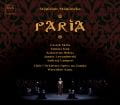 Stanisław Moniuszko: Paria
Stanisław Moniuszko: Paria
Stanisław Moniuszko: Paria
Katarzyna Hołysz, mezzo-soprano; Tomasz Kuk, tenor; Andrzej Lampert, tenor; Janusz Lewandowski, bass-baritone; Leszek Skrla, baritone; Choir and Orchestra of the Opera at the Castle; Warcisław Kunc, conductor
DUX 0686/0687
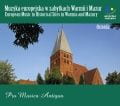 European Music in the Historical Buildings of Warmia and Mazury
European Music in the Historical Buildings of Warmia and Mazury
Benedetto Marcello: Sonata in C Major for English horn and b.c. (arr. for harpsichord and cello); Gaetano Donizetti: Romanza from Love Potion (arr. for flute and marimba); Joseph Bodin de Boismortier: Sonata in G Minor for bassoon and b.c. (arr. for harpsichord and cello); Gordon Jacob: Variations for flute and harpsichord; Lucjan Marzewski: Olsztyn Impression for flute solo; Neil Rosauro: Variations over Evelyn Glennie’s “A Little Prayer” for marimba solo; Tadeusz Kassak: Three tricks for flute solo; Carl Phillip Stamitz: Trio in G Major for flute, oboe and bassoon
DUX 0669
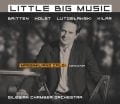 Little big music
Little big music
Benjamin Britten: Variations on a theme of Frank Bridge; Gustav Holst: St. Paul’s Suite; Witold Lutosławski: Five Folk Melodies; Wojciech Kilar: Orawa
Silesian Chamber Orchestra; Massimiliano Caldi, conductor
DUX0677
 Elżbieta Sikora Solo & Electronics
Elżbieta Sikora Solo & Electronics
Elżbieta Sikora: Orpheus’ Head II for flute and tape; Suite for cello and tape; Suite II for harpsichord and tape; Reflets irises for piano and electronic sound
Gośka Isphording, harpsichord; Wilhem Latchoumia, piano; Emmanuelle Ophele, flute; David Simpson, cello
DUX0679
Brazil Via Poland
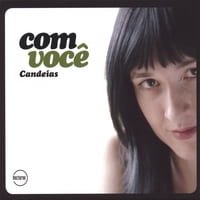 Candeias
Candeias
Arrangements of Brazilian classics by Antônio Carlos Jobim, Edu Lobo, Caetano Veloso, Marcos Valle, Roberto Menescal, George Gershwin, and Pat Metheny
Com Você: Maggie Grebowicz – vocals and Stan Killian – saxophone. With Eddy Hobizal – keyboards, Kyle Thompson – drums, Philippe Vieux – baritone saxophone and flute
cdbaby.com/cd/comvoce2
Since their debut in 2003, Com Você has been revisiting the classics of Brazilian music and offering them in fresh, new perspective. The group is led by Polish-born vocalist and arranger Maggie Grebowicz and Texan-born saxophonist Stan Killian. From the bossa nova onwards, they arrange well-known repertoire for the acoustic jazz quintet format. The singer switches freely between Portuguese, Polish, Spanish, English, and word-less vocal, and arrangements feature rich sax-vocal interaction and a variety of complex rhythmic patterns. The group also revisits compositions by American jazz artists whose work engages Brazilian traditions, like Wayne Shorter, Pat Metheny, and Jack DeJohnette.
Against the backdrop of today’s obsession with bossa nova, Jazzreview.com describes this project as “unique.” Peter Westbrook writes: “Overall it is remarkable how these seemingly diverse elements fit together…. It all works, as the singer bends each piece to her unique styling, hands it off to the various soloists, and then reclaims it for a final rendering…. For lovers of both jazz and Brazilian music, this is something fresh that deserves a hearing.”
String Music From Górecki & Penderecki
 Eternal Strings
Eternal Strings
Includes Henryk Mikołaj Górecki: 3 Pieces in Old Style, No. 3 and Krzysztof Penderecki: “Chaconne” from the Polish Requiem
Performers include Antoni Wit – Warsaw National Orchestra and Polish National Radio Symphony Orchestra; Theodore Kuchar – Ukranian State Symphony Orchestra; Tamas Benedick – Hungarian State Opera Orchestra; and others
Naxos 8.578027
The repertoire for string instruments on this disc includes such classics as Barber’s celebrated Adagio, Romantic favourites by Dvorák, Grieg and Tchaikovsky, as well as ravishing modern masterpieces by Glass, Gorecki, Pärt and Prokofiev. This is an album to treasure.
The Eternal Series provides an affordable and accessible means for listeners to explore the music of a diverse range of composers. The series strives to feature not only the best known works from important composers but also numerous overlooked gems that are not typically included on the myriad “Best of” collections in the marketplace. We’ve also expanded the series to encompass unique instrument-based collections, such as Eternal Guitar and Eternal Strings. [Naxos website]
Lachert/Lachert/Penderecki: Review
 Krzysztof Penderecki/Piotr Lachert
Krzysztof Penderecki/Piotr Lachert
Penderecki: Sonata No. 2 for violin and piano (1999); Lachert: Sonata No. 9 for violin solo (1993) and Sonata No. 17 for violin and piano (1998)
Hanna Lachert, violin, and Hélène Jeanney, piano
David Segal Violins
This disc, recorded and donated to the Polish Music Center by violinist Hanna Lachert, was made in honor of 2 composers’ birthdays: 70th of Piotr Lachert (who also happens to be the violinist’s brother) and 75th of Krzysztof Penderecki. According to reviewer Catherine Nelson, “Piotr Lachert’s two quirky and characterful pieces sit well with Penderecki’s spiky Second Sonata.” Nelson continues her review for The Strad magazine, saying:
A bright and crisp recorded sound lends added shine to Hanna Lachert’s perfectly controlled yet vividly imagined reading of the Penderecki. The furious, dashing spiccato of the caprice-like Allegretto scherzando has real brilliance, while the darker musings of the lengthy Notturno are beautifully paced, described with a broad, sweeping tone.
Obituaries
Piotr Janowski
Piotr Janowski, world famous violinist and the first Polish winner of the Henryk Wieniawski Competition, died on December 6th, 2008 in London, aged 57. The funeral took place on 18th December 2008 at 11 am at the Powązki Cemetery in Warsaw.
Piotr Janowski began his violin studies at the age of eight. At 16 he was awarded First Prize at the 5th International Wieniawski Competition in Poznań, Poland. He is also a First Prize winner of the Philadelphia Orchestra Competition, G.B. Dealy (Dallas, Texas), and of the Naumburg Competition (New York), twice, with the New Arts Trio.
After completing his studies in Poland at Warsaw’s Frederic Chopin Music Academy, Piotr Janowski continued his studies at the Curtis Institute of Philadelphia (with Zino Francescatti), at the Juilliard School in New York (with Ivan Galamian) and at the University of Southern California, Los Angeles (with Jascha Heifetz).
He performed as a soloist with major American and European orchestras, including the New York Philharmonic, Philadelphia Orchestra, St. Louis Symphony, Minnesota Orchestra, Warsaw Philharmonic, Oslo Philharmonic, and collaborated with such conductors as Leonard Bernstein, Leonard Slatkin, and Erich Leinsdorf.
A consummate recitalist and chamber musician, Mr. Janowski toured many times Asia, Europe, and South and North America, and performed at numerous festivals, including Marlboro, VT, Chautauqua, NY, Warsaw Autumn, and Dimitrios, Greece. He taught at the University of Wisconsin – Milwaukee, and at Eastman School of Music in Rochester, NY. He gave master classes at numerous institutions, including the Bologna Conservatorio, Italy, Barratt Due Institute in Oslo, Norway, the Oberlin College, and Northwestern University, Chicago.
Joachim Olkuśnik
Joachim Olkuśnik, composer and publicist, passed away in Warsaw on December 18th, 2008, aged 81. He was born on March 27, in Kostrzynia, he studied composition with Tadeusz Szeligowski in State Higher School of Music in Warsaw, from which he graduated in 1960.
Together with composers Benedykt Konowalski, Jan Fotek, Zbigniew Penherski, Romuald Twardowski and poets Andrzej Brycht, Stanisław Grochowiak, Ireneusz Iredyński, and Roman Śliwonik he created the “Camerata” artistic group. The group cooperated with Współczesność magazine and organized literary-musical evenings.
Mr. Olkuśnik was a member of the Polish Composer’s Union (ZKP). In 1964-70 he was a member of Music Section of the Polish Radio in Warsaw. Between 1974-1986 he served as Editor in Chief of Agencja Autorska Publishing Company, which was crucial in publishing and promoting Polish contemporary Music, especially solo and chamber.
His compositions were honored at the Fitelberg Competition in 1964 and Łańcut Competition in 1980. His music was performed all around the world.
Stephen Herx
Stephen Herx, Marcella Sembrich researcher and educator, passed away on the morning of January 7th, 2009. Mr. Herx knew more about the life & career of Marcella Sembrich than anyone else today. He gave numerous talks at the Marcella Sembrich Opera Museum over the past 14 years. Most recently, he participated in Sembrich Symposium held in honor of the “Year of Sembrich” this past August. Mr. Herx was also the former Director of Programming at Education Through Music. Memorial details for Mr. Herx are available at educationthroughmusic.org.
Franciszek Woźniak
Franciszek Woźniak, well known composer, pianist and teacher, died on January 15th, 2009, aged 77. Woźniak was the winner of many competitions for composers. He was the long-time lecturer and vice-chancellor of the Music Academy in Bydgoszcz. He served as president of the Polish Composers’ Union’s Poznań Branch and was a member of the “Poznań Music Spring” Repertoire Committee.
Krystyna Kobylańska
Krystyna Kobylańska, Polish musicologist and Chopinologist, died on 30th January 2009 in Milanówek at the age of 84. She was born on August 6, 1925 in Brześć. She studied piano at the Warsaw Conservatory and musicology at Warsaw University.
From 1951 to 1966 she worked at the Fryderyk Chopin Society in Warsaw, holding such posts as head of the FCS Museum. In the years 1966-67 she carried out research into French Chopinalia at the Centre Nationale de Recherche Scientifique.
Ms. Kobylańska’s research into the Chopin oeuvre is of a documentational and source-analytical character. She is the author of an edition of the composer’s correspondence and of catalogues of his work, the most important of which is her catalogue of manuscripts of Chopin’s works (2 vols. 1977). Her articles are also important contributions to Chopin’s biography. Memorial details are available at the Fryderyk Chopin Institute website.
Anniversaries
Born This Month
- 2 February 1909 – Grazyna BACEWICZ , composer, violinist, pianist (d. 1969)
- 7 February 1877 – Feliks NOWOWIEJSKI, composer, organist
- 8 February 1953 – Mieszko GÓRSKI, composer, teacher (active in Gdansk and Koszalin)
- 9 February 1954 – Marian GORDIEJUK, composer, teacher, theorist (active in Bydgoszcz)
- 14 February 1882 – Ignacy FRIEDMAN, pianist and composer (d. 1948)
- 18 February 1881 – Zygmunt MOSSOCZY, opera singer (bass), chemist (d. 1962)
- 27 February 1898 – Bronislaw RUTKOWSKI, organist, music critic, conductor and composer (d. 1964)
- 28 February 1910 – Roman MACIEJEWSKI , composer, pianist (d. 1998 in Sweden)
- 28 February 1953 – Marcin BŁAŻEWICZ, composer, teacher (active in Warsaw)
Died This Month
- 3 February 1959 – Stanisław GRUSZCZYŃSKI, tenor (active throughout Europe, b. 1891)
- 3 February 1929 – Antoni Wawrzyniec GRUDZIŃSKI, pianist, teacher, and music critic (active in Lódz and Warsaw, b. 1875)
- 7 February 1954 – Jan Adam MAKLAKIEWICZ, composer (active in Warsaw, b. 1899)
- 7 February 1994 – Witold LUTOSŁAWSKI , composer and conductor (b. 1913)
- 8 February 1909 – Mieczysław KARŁOWICZ , composer, conductor, writer (b. 1876)
- 9 February 1959 – Ignacy NEUMARK, composer and conductor (active in Copenhagen, Oslo and Schveningen, b. 1888)
- 10 February 1905 – Ignacy KRZYŻANOWSKI, pianist and composer (active in Kraków and Warsaw, b. 1826)
- 14 February 1957 – Wawrzyniec Jerzy ŻULAWSKI, composer, music critic, teacher, and mountain climber (b. 1916)
- 23 February 1957 – Stefan ŚLĄZAK, singer, organist, conductor (active in Silesia, b. 1889)
- 27 February 1831 – Józef KOZLOWSKI, composer (active at the Russian Court in Petersburg, b. 1757)
- 29 February 2004 – Witold RUDZIŃSKI, composer, music critic and teacher
